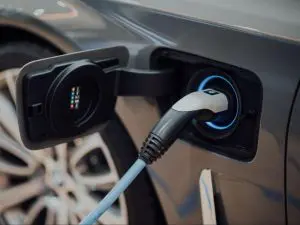If you live in an older home, you probably love its charm—beautiful woodwork, vintage fixtures, and unique character that newer houses just don’t have. But behind the walls, there may be something not-so-charming: an outdated electrical panel that’s struggling to keep up with modern demands.
At Revamp Electric, we know that homeowners in Delaware, OH, want to feel safe and confident in their homes. That’s why we’re here to help you identify five common electrical panel problems in older homes—before they become costly or dangerous.
Overloaded Circuits: When Your Panel Can’t Keep Up
The Problem: Decades ago, homes were wired to handle far less electricity than we use today. If your panel was installed before the 1980s, it might only support 60-100 amps—nowhere near enough for modern appliances, HVAC systems, and smart devices.
According to our friends at Genz-Ryan, these are the warning signs:
- Frequently tripped breakers
- Flickering or dimming lights when appliances turn on
- Warm or buzzing outlets
The Solution: Upgrading your electrical panel to a 200-amp system (or higher) can prevent dangerous overloading, reduce fire risks, and give your home the power it needs.
Old or Unsafe Panel Brands
The Problem: Some older electrical panels were poorly designed or have become safety hazards over time. Brands like Federal Pacific Electric (FPE), Zinsco, and Pushmatic have been linked to serious fire risks due to faulty breakers that fail to trip when needed.
The Warning Signs:
- Your panel is one of these recalled brands
- Breakers that won’t reset properly
- Melted or scorched wiring inside the panel
The Solution: If your home has one of these outdated panels, replacing it should be a top priority. A modern panel upgrade ensures your system meets today’s safety standards.
Fuse Boxes Instead of Circuit Breakers
The Problem: Many older homes still rely on fuse boxes instead of circuit breaker panels. While fuses technically work, they aren’t as safe or convenient as breakers. Some homeowners even install oversized fuses or “penny” their fuses to prevent them from blowing—a dangerous fire hazard.
The Warning Signs:
- Your home still uses a fuse box
- Blown fuses are a frequent issue
- You’ve seen signs of tampering (such as coins or larger fuses installed incorrectly)
The Solution: Upgrading from a fuse box to a modern circuit breaker panel makes your home safer, eliminates the hassle of replacing fuses, and ensures your electrical system is up to code.
Double-Tapped Breakers
The Problem: A double-tapped breaker occurs when two wires are connected to a single breaker, which can cause overheating and arcing. While some breaker models allow this safely, most do not. It’s a common issue in older homes where circuits have been added without a proper panel upgrade.
The Warning Signs:
- Breakers that trip unexpectedly
- Burn marks or melted insulation near breaker terminals
- A crowded or messy electrical panel
The Solution: A licensed electrician can assess whether your panel supports double-tapped breakers. If not, we can install a larger panel or additional subpanels to distribute the electrical load safely.
Corrosion and Wear Over Time
The Problem: Like any part of your home, electrical panels degrade with age. Corrosion, rust, and general wear can weaken connections and create serious fire hazards. Moisture, pests, and improper past repairs can make things even worse.
The Warning Signs:
- Rust or white powdery buildup inside the panel
- Loose or wobbly breakers
- A burning smell near the panel
The Solution: If your panel shows signs of corrosion or wear, it’s time to replace it. A well-maintained panel is essential for your home’s safety and long-term reliability.
Time to Revamp Your Electrical Panel?
If any of these issues sound familiar, it’s time to take action. At Revamp Electric, we specialize in modern electrical panel upgrades, ensuring your home in Delaware, OH, is safe, efficient, and up to code.
Don’t wait until a small issue becomes a major hazard—schedule an inspection today and let’s get your home’s electrical system up to speed.



